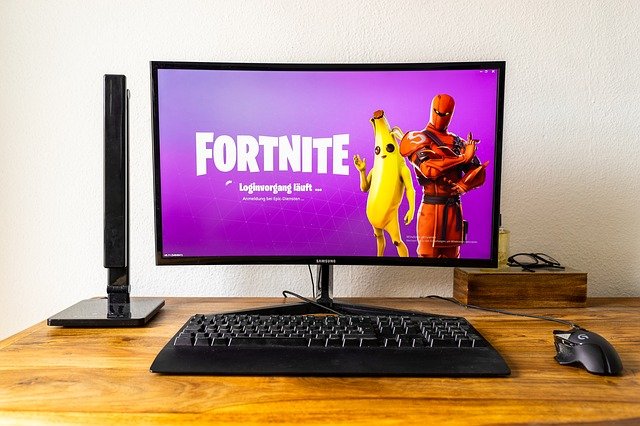
Yes a gaming PC will emit out an average of 4.1x more radiation than a regular PC
I’ve written extensively on the dangers posed by EMF radiation from computers and just how harmful they can be to our health.
However, today I want to focus on comparing what kind of computers emit out the most radiation – gaming PCs or regular computers. If you looked at what computer options people choose to use nowadays, it’s mostly gaming PCs.
Now, gaming PCs come with unique challenges and risks since all of the components inside the computer are rated for high performance and hence emit out more radiation than yesteryear desktops.
Thus it becomes critical to find out which machine generates the least radiation overall so that we can make an informed decision before making our next computer purchase.
Before we get into it here are my favorite EMF protection products
- DefenderShield EMF Radiation Protection Blanket – Ultimate protection from wireless radiation. The only EMF radiation protection blanket with multiple layers of shielding to block up to 100% of wireless (RF) radiation from cell phones, tablets, laptops, WiFi routers, and other electronic devices, and ambient emissions in the environment. Available here.
- DefenderPad Laptop EMF Radiation Protection & Heat Shield. The DefenderPad is the ONLY laptop pad that uses multiple layers of shielding to block up to 100% of laptop EMF radiation (RF & ELF) while also greatly reducing heat! Get the latest price here.
- DefenderShield Universal EMF Radiation Protection Pouch for Smartphones – EMF shielding to block up to 100% of wireless (RF) radiation. Most pouches only block a percentage of radiation emitted from your cell phone. Shielding is within the backside of the pouch to block signals and EMF emissions going towards the body, yet does not interfere with phone connectivity. Available here.
- Copper Fabric Blocking RFID/RF-Reduce EMF/EMI Protection Conductive Fabric for Smart Meters – Very easy to cut and sew. Usage for Bags, Curtains, Tents, etc. Effective Shielding for CellTowers, Microwave Signals, Phones, and Smart Meters. Find it here.
- TriField EMF Meter Model TF2. is an AC gaussmeter, AC electric field meter, and radio power density meter in a single unit, that combines all the features needed for fast, accurate measurements of electromagnetic fields (EMF). Best price on Amazon here.
The basics of computer radiation
If you are new here or don’t know too much about radiation in general, I would invite you to take a moment and go through some of the other articles written here to really get a grasp of the dangers of EMF radiation.
Simply put, computers generate a massive amount of radiation which is typically magnetic and RF in nature, exposing to which can cause all sorts of health problems. Some of the common ones include:
- Fatigue: One of the most common symptoms of computer radiation is tiredness or the feeling of fatigue wherein despite having a full night’s sleep, you feel low on energy and the feeling persists all day long.
- Sleep problems: This is a common trend too among people using computers. As you spend more and more time in front of the computer, you are continuously getting exposed to EMF radiation that severely affects sleep quality. I have in fact written a whole article about how to reduce EMF radiation from your computer in order to sleep better which I urge you to check out if you too have sleep issues.
- Brain fog: This is a sensation wherein you have trouble recollecting names, places, etc. from memory. Unfortunately, this too is becoming increasingly common. Side effects of this also include attention deficit, memory fades, and spacing out walking into a room. There is a serious debate going on in the scientific community to find out if this is a sign of early-onset Alzheimer’s. A recent study done by researchers at the Johns Hopkins University predicts that the total number of people suffering from this disease will triple by 2050.
- Chest pain and palpitations: This is common in people who exhibit electro-hypersensitivity. This happens because of restricted blood flow to the cardiac muscles, thus creating a sensation of racing or fluttering heartbeat. It’s not deadly but can certainly contribute to degrading your heart performance if not corrected within reasonable timeframes.
- Skin reactions: Some people also react with irritations to the skin like unnatural redness, tingling of the skin, or a sudden outbreak of rashes. It’s increasingly common in people who spend the majority of their time on the computer.
That aside, increased exposure to EMF can lead to all sorts of long-term health risks including contracting some really serious chronic diseases.
The likelihood of inducing a chronic disease like diabetes goes up significantly and even your risk of contracting cancer is increased.
EMF is cumulative meaning it builds inside of us and as we surround ourselves more and more with these fancy gadgets that are essentially cesspools of radiation, we put ourselves at grave health risks without fully comprehending the gravity of it all.
So as you can see, computer radiation is a very serious problem that needs our attention right now.
But are more computers more dangerous than others? In this next section, we take a look at gaming computers and how they stack up against the regular ones.
Radiation and gaming computers

Gaming computers are custom built to run processor-intensive graphics and process multiple frames at once for smooth gameplay. To achieve that, the CPUs are constructed with more cores and bigger cache memory.
RAMs are also upgraded to a higher gigabyte count (gaming RAMs are typically between 12-32 GB whereas regular computer RAMs are in the range of 4-8 GB). These RAMs also operate at higher frequencies.
That apart, gaming PCs have several auxiliary components to them as well such as a dedicated GPU, high wattage SMPS, etc. Also, wireless auxiliary components are common with gaming PCs including mice and keyboards.
All these components emit a high volume of radiation because of its higher operating frequency. All in all, if we consider the RF radiation from the wireless auxiliary units as well, the radiation level is ridiculously high.
As you can see, a custom gaming PC build will emit out a ton of radiation while switched on. It has been calculated that a gaming PC will emit out an average of 4.1x more radiation than a regular PC.
The lower number of the regular PC is attributed to a low powered CPU and the absence of such high-performance add-ons.
That being said, the radiation emitted by regular PCs are by no measure minuscule. However, they pale in comparison to the level of radiation generated by gaming PCs.
The menace of radio frequency
Radiofrequency is a common radiation that you will be exposing yourself to if you’re sitting for long hours in front of the computer.
Both gaming PCs and regular ones generate radio frequency, although to be fair, the radio frequency generated by the gaming PC is significantly higher than that of regular PCs.
Radiofrequency is mainly generated from the wireless card and Bluetooth antennae that help in connecting wireless devices to your computer. PCs across the board are terrible at containing this radiation.
They spew out massive loads of radiofrequency radiation whilst attempting to connect to wireless devices. That being said, gaming PCs emit out significantly more radiation because of its high wattage equipment.
Gaming PCs are also more likely to come with wireless keyboards and mice which only add to the radiation levels.
The final word – gaming PCs or regular computers?
Regular computers win this hands down. Not only do they have lower levels of RF radiation than gaming PCs, but they also have significantly low EMF radiation and are more energy-efficient to run.
Truth be told, if you are not doing something very specific like editing videos for a living or writing massive amounts of codes and programs, you don’t need a gaming PC.
Buying a PC just for the sake of playing games is not only ridiculous from a purchase point of view but also from an economic perspective. If your sole intention is to play games, there are gaming consoles out there that are specifically designed to do just that.
And they cost a fraction of what the gaming PCs cost. If you’re interested in finding out if gaming consoles emit radiation and which are the best ones to buy, I have an article for you to check out.
If you are looking to reduce exposure to radiation, it is a good idea to stick to a regular computer. They get most of the stuff done and don’t expose you even close to what a gaming PC does.
That being said, even regular computers emit quite a lot of radiation. In the next segment, I will try to list out things you can do to minimize your exposure and protect yourself and your family from the dangers of radiation.
Best practices to keep you safe from radiation
No matter whether you choose a gaming PC or a regular one, always remember that no computer is 100% radiation proof and you need to take some basic precautions if you’re one of those people who work long hours in front of the computer. I’ve outlined some of the easy precautions below:
Distance is your friend
This is perhaps the most underrated yet the most effective way to reduce radiation, regardless of the make of your machine.
Distance and radiation work with the inverse square law, meaning if we double the distance between the source of radiation and us, the radiation reaching us would be quartered.
If you ask me, that’s a pretty good deal. So the next time you’re on your computer, place your chair back and pull the keyboard in front. That should help lower your radiation exposure levels.
Switch away from Wi-Fi
This is especially effective for gaming PC users but is good advice for both demographics.
Move away from Wi-Fi and switch to good old LAN. It will not only bring down your radiofrequency exposure levels to zero but will also provide you with a more stable internet connection that runs at a consistent speed.
The best way is to hardwire your house. Find the details here: HardWiring Your Home Using Powerline Adapters.
Do something about blue light
This isn’t directly related to radiation but is still relevant to what we are talking about. Regardless of whether we use gaming PCs or not, they all generate blue light which can cause a lot of problems including insomnia and sinusitis.
Thus it is important that we block out as much blue light as we can while working on our computers.
I have written an extensive article just on the topic and have several personal recommendations for you to check out if you’re interested in finding out how you can tackle the menace of blue light radiation.
How To Protect Your Child From Blue Light While Gaming
Does my computer give off more radiation while using 5G?
Not really. If you were to measure the amount of radiation that is being emitted now by your computer versus the amount while connected to a 5G network, the quantum of radiation would be more or less the same.
However, you need to understand that 5G waveforms are fundamentally different from what we have historically used. Thus, it need not be more in quantum to cause more damage to our bodies.
5G radiation is high frequency and because of that can interfere with our biosystems to a greater degree. Your computer won’t give off more radiation than it is currently doing but those radiations can do much more damage now than ever before.
If you are someone who spends a significant chunk of the day in front of the computer, you would be well advised to take precautions against it and look for ways to counter such massive exposure levels.


